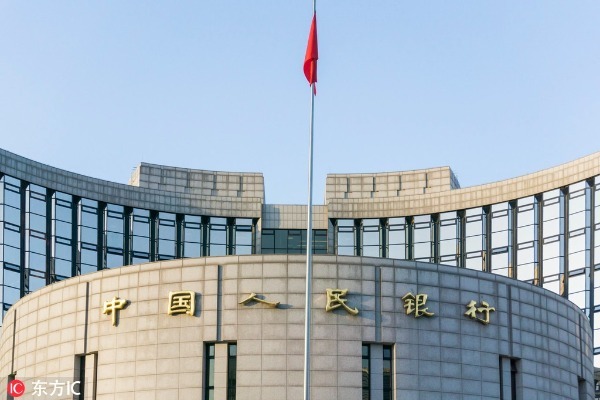Payment guide seen as assisting opening-up


The recently released guide to further improve foreigners' payment experiences in China is not only part of the country's continued opening-up but is also conducive to the internationalization of its financial sector, said experts.
The People's Bank of China, the country's central bank, released on Thursday a payment guide which provides foreigners with text and graphic instructions on using bank cards, cash, mobile payment and e-CNY in China.
No ID is required for transactions under a certain amount when foreigners use mobile payments such as Alipay, Weixin Pay and UnionPay. Some international e-wallets such as TrueMoney, which originated in Thailand, and Naver Pay, which is frequently used in South Korea, are directly accepted by merchants in China. Foreigners can also open bank accounts with passports or other valid ID at major banks such as Industrial and Commercial Bank of China.
According to Wang Pengbo, a senior analyst at market consultancy Botong Analysys, the requirement on ID for mobile payments in China used to be the major barrier making foreigners reluctant to connect mobile payment tools such as Alipay with their overseas bank cards.
Another major hurdle, which was the payment limit, was addressed at the beginning of this month when the PBOC announced that the single mobile payment transaction limit for foreigners in China was being increased from $1,000 to $5,000 and the annual limit was being increased from $10,000 to $50,000, said Wang.
But he also suggested that the number of automatic teller machines in China should not be reduced since a large number of foreigners still use cash more often.
Liu Chunsheng, an associate professor at the Central University of Finance and Economics' School of International Trade and Economics, said that the issue of payment is closely related to China's image and competitiveness in the international financial market.
By illustrating the detailed payment methods, the newly released guide will help to remove the various inconveniences and confusion encountered by foreigners staying in China, which is increasingly important as more foreigners will work or live in China amid the country's rapid economic development and deepened internationalization.
The PBOC's payment guide has also addressed the State Council's guideline released on Mar 7 which aims to further optimize services and enhance payment convenience, said market experts.
Alipay, the digital payment arm of technology giant Ant Group, said on Friday that foreign visitors to China can use the app to complete payments at restaurants, hotels, scenic spots, convenience stores and supermarkets, as well as for ride-hailing, shared bike and other public transportation services in China.
According to Alipay, spending by overseas tourists using the app increased 500 percent year-on-year during the recent Lunar New Year holiday, while the number of merchants receiving overseas tourists jumped 560 percent on a yearly basis during the holiday.
Inbound tourism and consumption will be further boosted amid continued efforts to improve mobile payment services available to overseas tourists, said Alipay.
The PBOC's latest guide also marks an important step forward in the internationalization of the Chinese financial industry, as it not only provides convenience to foreigners but also demonstrates the openness and inclusiveness of the nation's financial sector, according to Liu from the Central University of Finance and Economics.
Dong Ximiao, chief researcher at Merchants Union Consumer Finance, said that providing more convenient payment services to foreign visitors to China is part of the deepened opening-up of China's payment sector.
He suggested that Chinese payment companies should accelerate their outbound reach in an orderly manner to provide payment solutions to local users, which can help these companies come up with internationally recognized services and technology standards.
Meanwhile, foreign institutions should be steadily introduced into the Chinese onshore payment and bank card clearing market to further optimize the market landscape in the payment sector, he added.
MOST POPULAR
- 1 A look at China's economy in Q1 of 2024
- 2 China to remove foreign ownership restrictions in value-added telecom services in pilot areas
- 3 Query service of A Guide to Working and Living in China as Business Expatriates launched
- 4 Clear negative lists to speed up services trade
- 5 Canton Fair opens in China with surge in overseas purchasers
Editors' Picks
 Infographic:
How to understand China's production capacity
Infographic:
How to understand China's production capacity
 Infographic:
Milestones of China's journey to space
Infographic:
Milestones of China's journey to space





